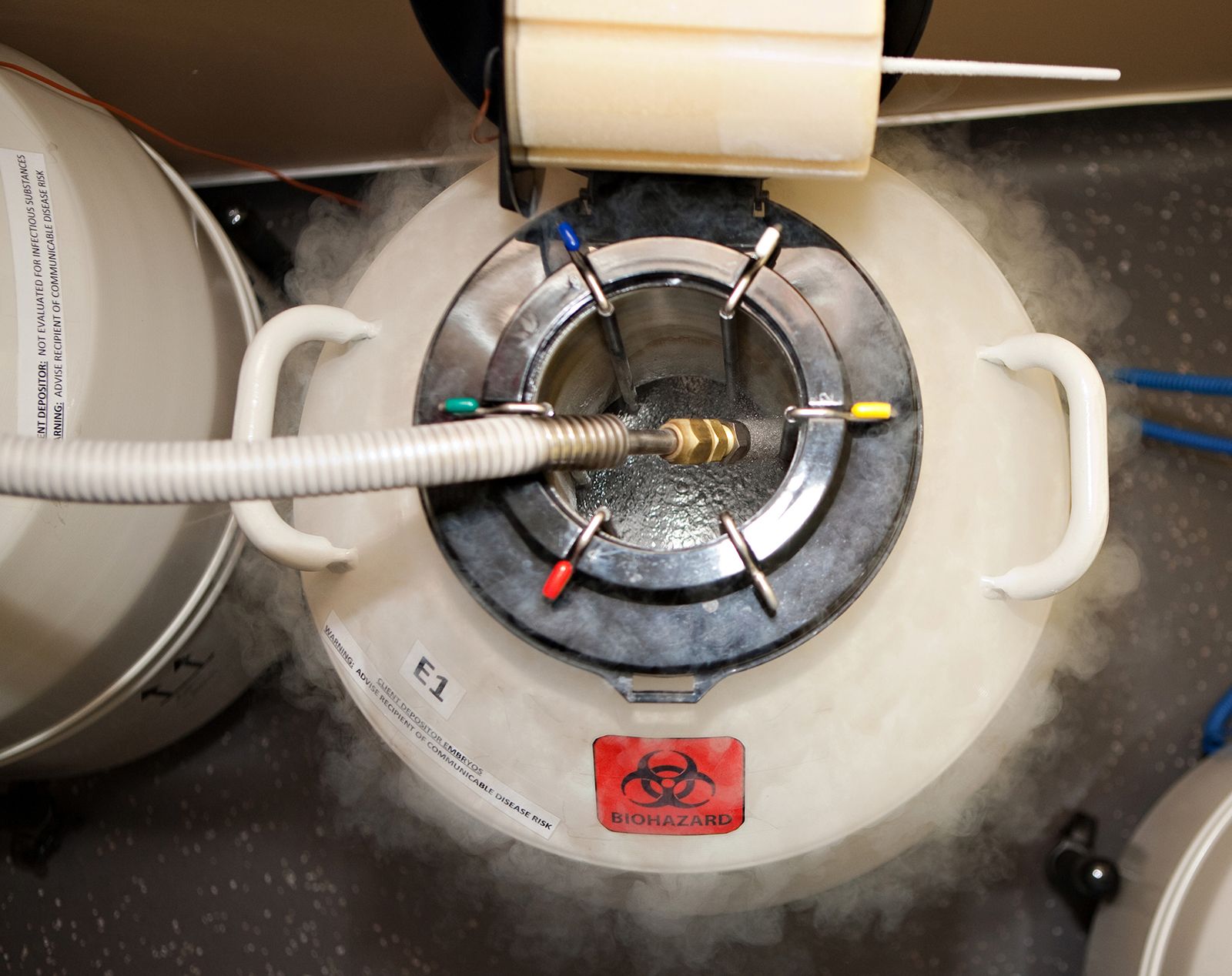What’s the Difference Between a Fresh vs. Frozen Embryo Transfer?
 As infertility has become an increasing issue for many couples in the United States, the medical community has worked hard to deliver treatments, such as in vitro fertilization (IVF), to help make the dream of having a baby a reality. Board certified in the field of reproductive endocrinology, our doctors at Heartland Center for Reproductive Medicine, PC in Omaha, NE are among some of the best. Dr. Maclin and Dr. Gustin take the time to meet with their patients to discuss IVF and the steps involved, so as to provide clarity about the procedure to help patients achieve the best possible results.
As infertility has become an increasing issue for many couples in the United States, the medical community has worked hard to deliver treatments, such as in vitro fertilization (IVF), to help make the dream of having a baby a reality. Board certified in the field of reproductive endocrinology, our doctors at Heartland Center for Reproductive Medicine, PC in Omaha, NE are among some of the best. Dr. Maclin and Dr. Gustin take the time to meet with their patients to discuss IVF and the steps involved, so as to provide clarity about the procedure to help patients achieve the best possible results.
During the IVF procedure, patients will undergo a series of steps. This process includes egg and sperm retrieval. Once retrieved, they will be combined together under careful supervision in our state-of-the-art lab. As the embryos develop, patients can have them transferred. Any remaining embryos can undergo cryopreservation so they can be used at a later date for a frozen embryo transfer. This is beneficial for patients who experience a failed IVF or want to expand their family in the future. Our doctors explain the difference between a fresh vs. frozen embryo transfer below.
The Fresh Embryo Transfer
After the eggs and sperm have been retrieved, they will be combined together for fertilization. If fertilization is successful, the embryos will be monitored by our in-house lab director to determine the quality of the embryo. As the embryos are awaiting transfer, you will be given hormone therapy medications to help with the implantation process. Patients generally only have to wait three to five days before transfer, minimizing wait times.
IVF has been a preferred method of fertility treatment for thousands of patients for over 30 years. As technology has advanced, success rates have continued to improve. The American Pregnancy Association has documented that 41 to 43 percent of women 35 years and under who choose IVF deliver a baby successfully. To help improve success rates, embryologists are able to select the highest quality of embryos.
The Frozen Embryo Transfer
In cases where the embryo fails to implant or the pregnancy results in a miscarriage, patients can choose a frozen embryo transfer if there are in remaining embryos leftover from the previous procedure. Cryopreservation has proven to be a successful tool in helping patients expand their families. Although fresh embryo transfers have received higher success rates in the past, according to recent studies, frozen embryo transfers deliver the same great results when an experienced physician using quality embryos performs the procedure. More recent studies have shown that pregnancies conceived naturally and through frozen embryo transfer deliver similar results.
How is this possible?
During a fresh embryo transfer, patients are given high doses of hormone therapy medications to induce egg production. This can affect the uterine atmosphere during embryo transfer, due to the short time between retrieval and transfer, resulting in implantation complications.
Women who choose frozen embryo transfer do not have to undergo the same amount of hormone therapy medications, thus in turn creating a more natural uterine environment for the embryos. This reduces your risk for miscarriage and increases your chances for a successful pregnancy. Statistics also show that frozen embryo transfers result in healthier pregnancies and babies.
Contact Our Office
If you are interested in learning more about IVF and the embryo transfer process, contact our office today online or call 877-831-3227. Even if you are not quite ready to conceive, but know you want to have a family one day in the future with your partner, you can use IVF and cryopreservation to help make this possible. Once the embryos are frozen, this will prevent them from aging, allowing you to maintain healthy embryos.






